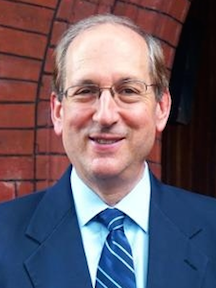Last spring, I was honored to deliver a commencement address at Skidmore College. I framed my remarks around the rhetorical question “Was it worth it?”, an inquiry I surmised that many in the audience may have faced from well-meaning relatives and friends during their undergraduate years, perhaps during commencement weekend itself. My answer, not surprisingly, was an emphatic “yes,” although perhaps not for the reasons the graduates expected.
College had certainly prepared them to launch their careers. Surveys show that whatever the difference between starting salaries of arts and sciences majors and those trained in professional fields, liberal arts graduates ultimately catch up and can even exceed their colleagues in compensation. But my main reason for saying that their education had indeed been worth it focused on the ways in which the liberal arts and sciences prepared them to respond to change. Widespread social change can cause a kind of fear that leads to an impulse to replace the messiness of pluralism, uncertainty, and democracy with a false certainty based on authoritarianism. Studies demonstrate that liberal arts students are less inclined to adopt attitudes of political intolerance, signified by the inclination toward the repression of free speech, xenophobia, nativism, racism, ethnocentrism, and religious sectarianism. The distinctively American tradition of education is not only appropriate to democracy, it is essential to its survival. For it is liberal arts and sciences education that fosters the sustained engagement of free individuals committed to our shared values of justice, liberty, human dignity, and the equality of persons.
The question of the worth of higher education has become a question of the moment raised by our entire society. For nearly 250 years, Phi Beta Kappa has answered an emphatic “yes” to the question of “Is it worth it?” A recent example demonstrates the importance of our mission. In August, West Virginia University proposed dramatic measures to alleviate budget pressures, including the elimination of its entire Department of World Languages, Literatures, and Linguistics, unprecedented at a Phi Beta Kappa institution. The Society expressed grave concern with this proposal, through a public statement and a letter addressed to university leadership.
Language study is an essential component of an arts and sciences education. Research suggests that it enhances communication skills and promotes intercultural competence, imperative qualities for personal and career success in today’s complex and changing world. At the time of writing this column, the university appears ready to step back from departmental elimination. In its final recommendation, the university expressly stated one goal in preserving some on-campus language study was to “support our students pursuing prestigious scholarships and membership in honorary organizations such as Phi Beta Kappa.”
Phi Beta Kappa recognizes the extraordinary challenges universities across the country face in remaining fiscally responsible while providing a well-rounded educational experience. The challenge is to preserve the foundation of an arts and sciences education. We will vigorously champion its value to students on our campuses and to our entire society.
I invite you to join us in acting to preserve arts and sciences education in your communities and on your campuses and urge you to visit the Society’s National Arts and Sciences Initiative site for resources and ways to get involved. Not only is a liberal arts education worth it—it is worth our collective voices and actions.
Frederick M. Lawrence
Secretary and CEO




